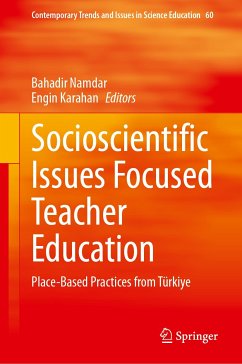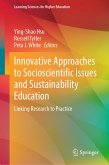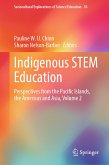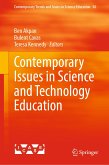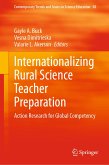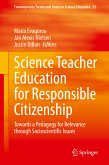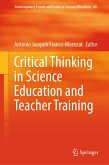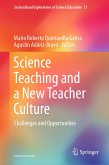The book aims to empower teachers to provide students with learning experiences centered on local socioscientific issues essential for developing scientifically literate citizens. Each chapter showcases effective practices, focusing on local topics like gold mining, nuclear power plants, and river pollution. By incorporating socioscientific elements into science lessons, teachers are encouraged to foster students' responsibility values, argumentation, critical thinking, and awareness. Emphasizing the crucial components of place-basedness and relevancy of SSI learning environments, students are guided towards more sophisticated ways of conceptualizing and resolving SSI.
The intended audience includes science teacher educators, researchers, and educators devoted to engaging students in meaningful socioscientific learning experiences.
Dieser Download kann aus rechtlichen Gründen nur mit Rechnungsadresse in A, B, BG, CY, CZ, D, DK, EW, E, FIN, F, GR, HR, H, IRL, I, LT, L, LR, M, NL, PL, P, R, S, SLO, SK ausgeliefert werden.

